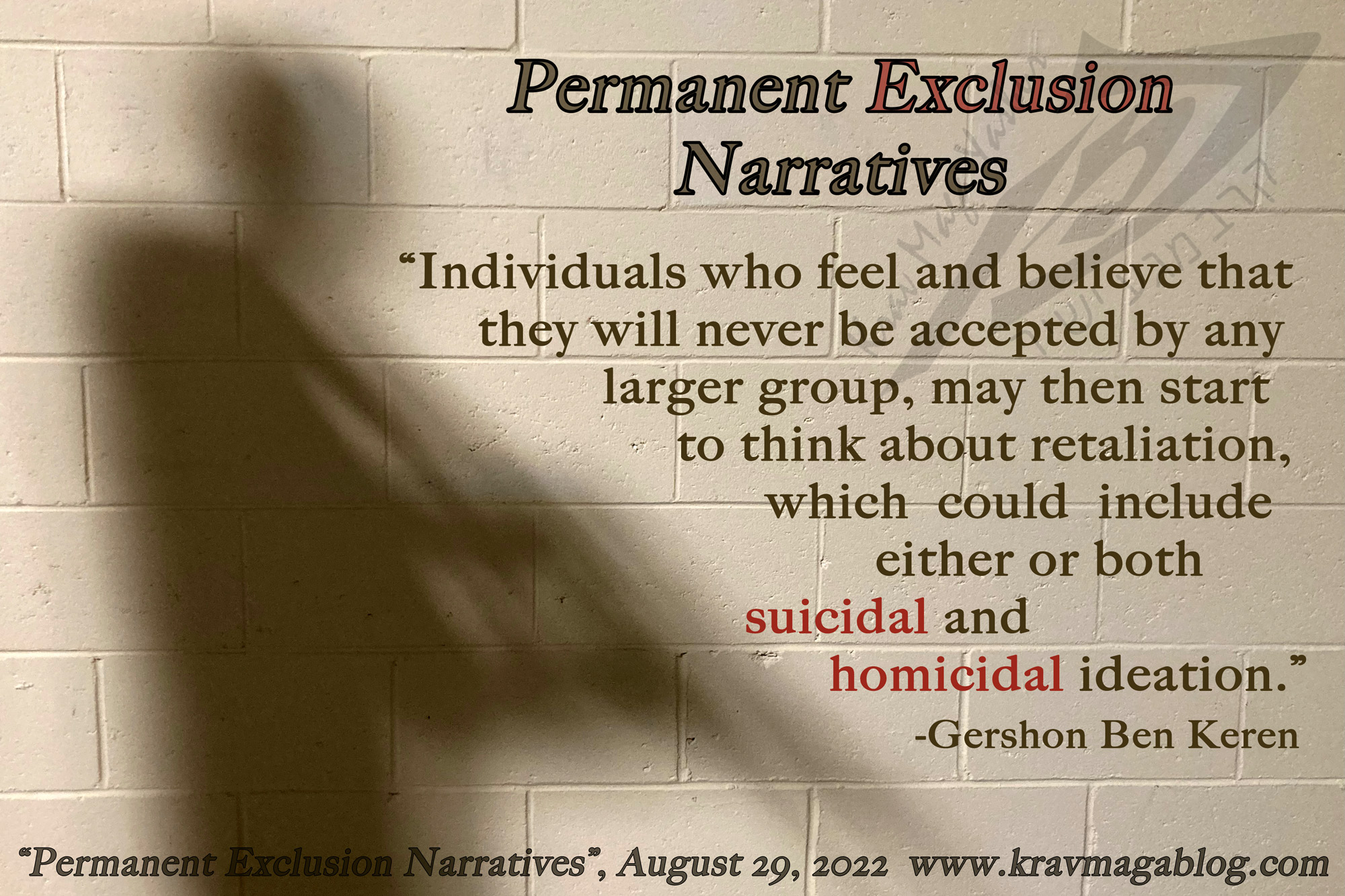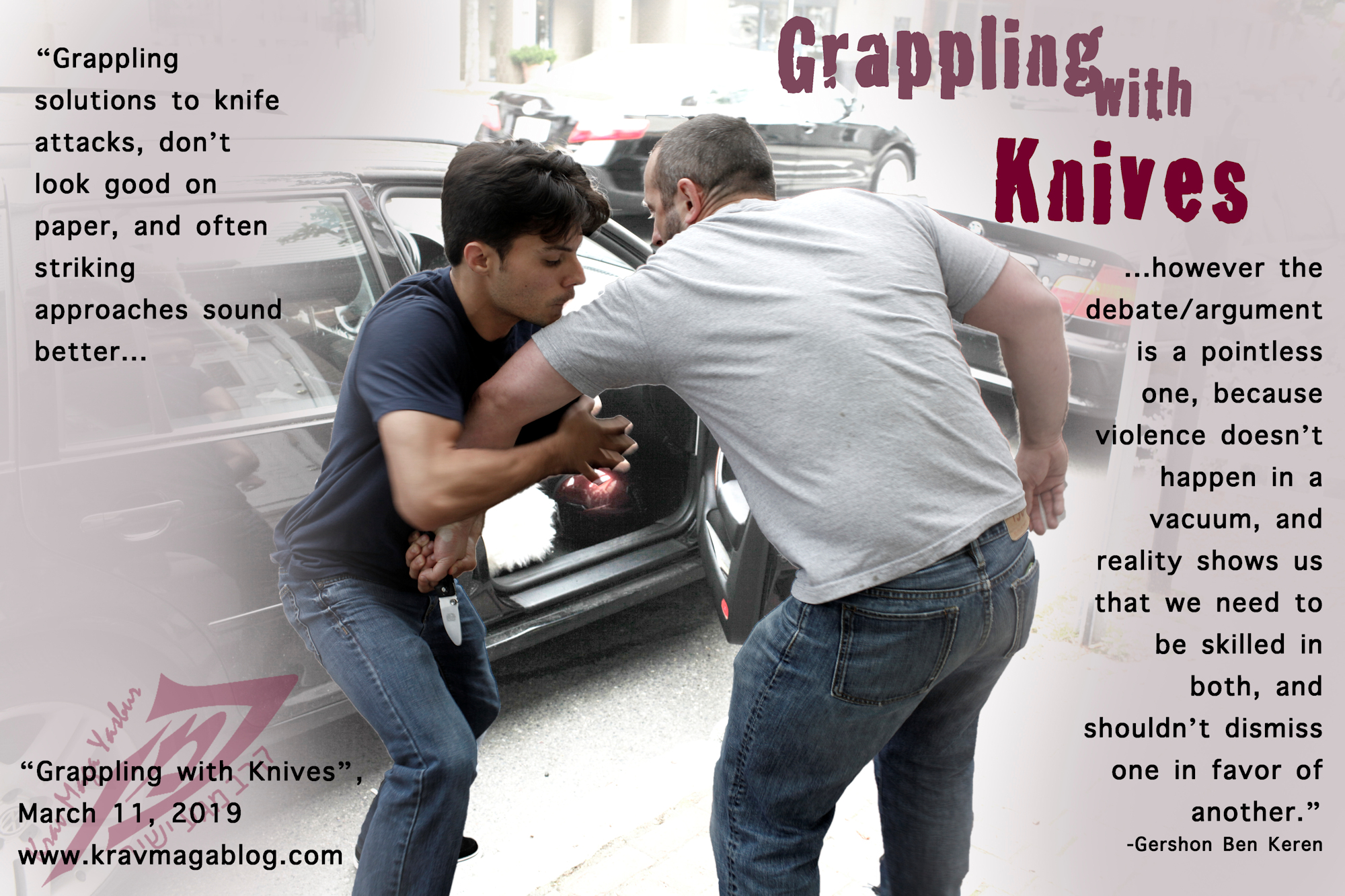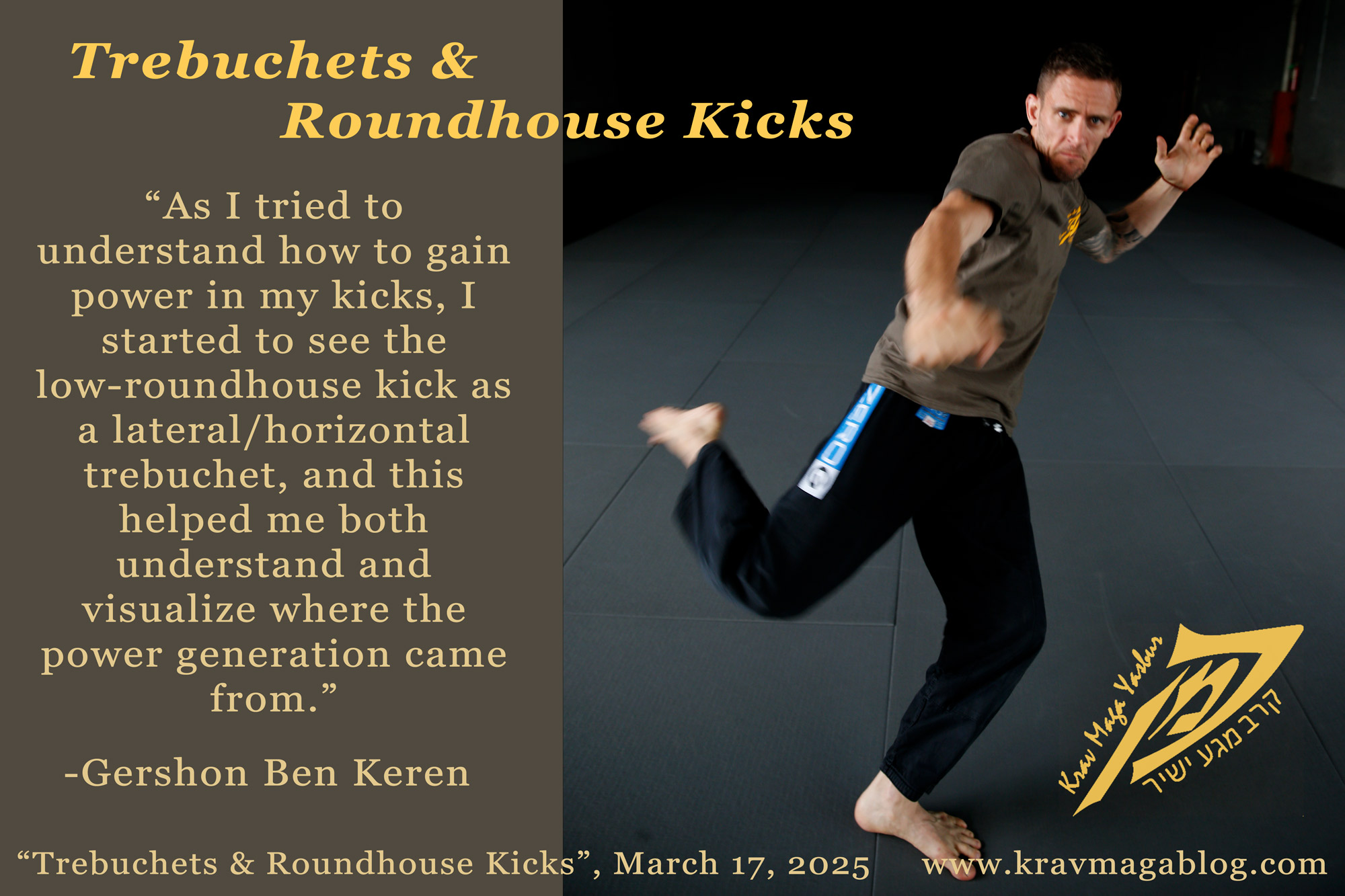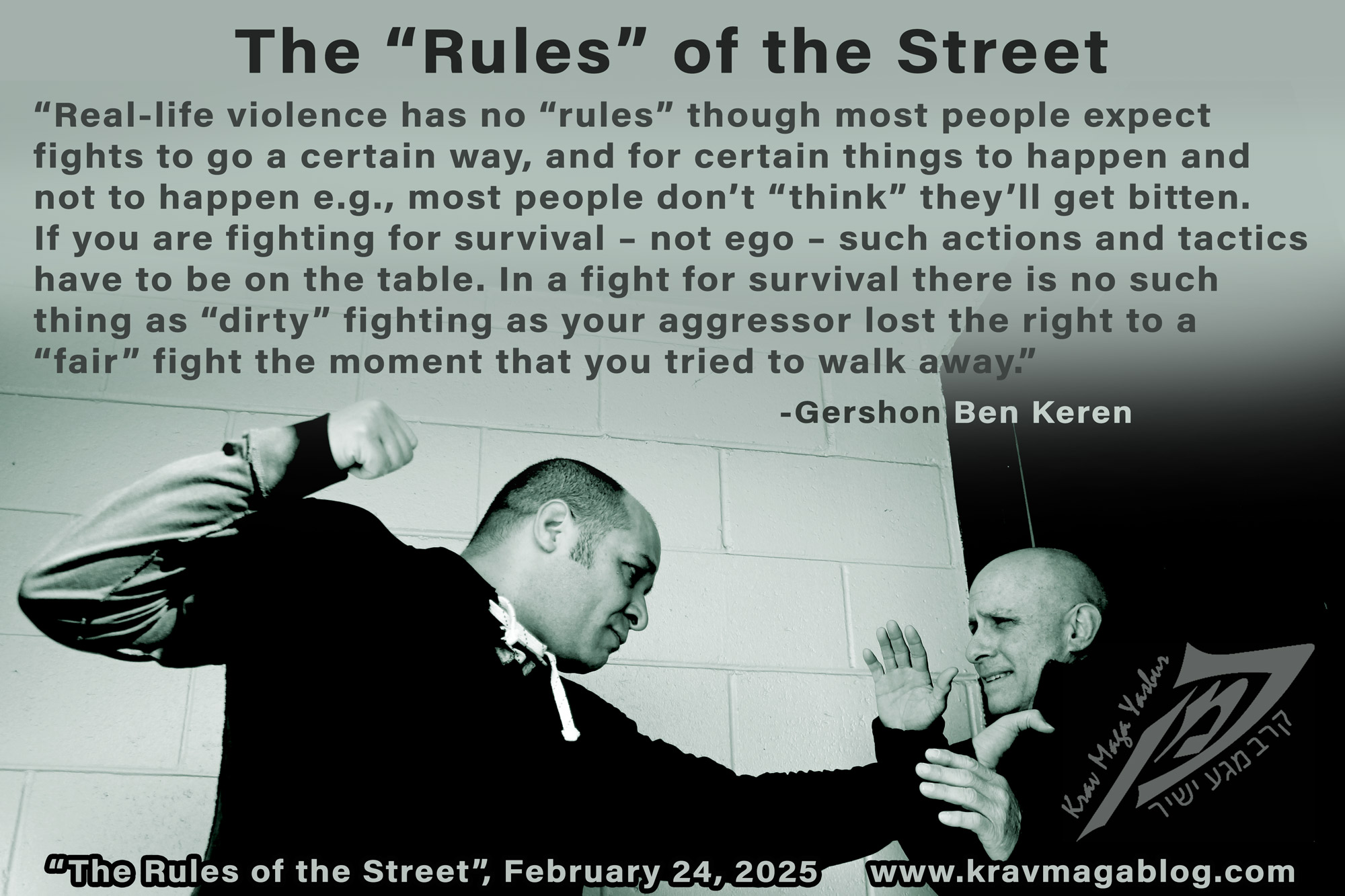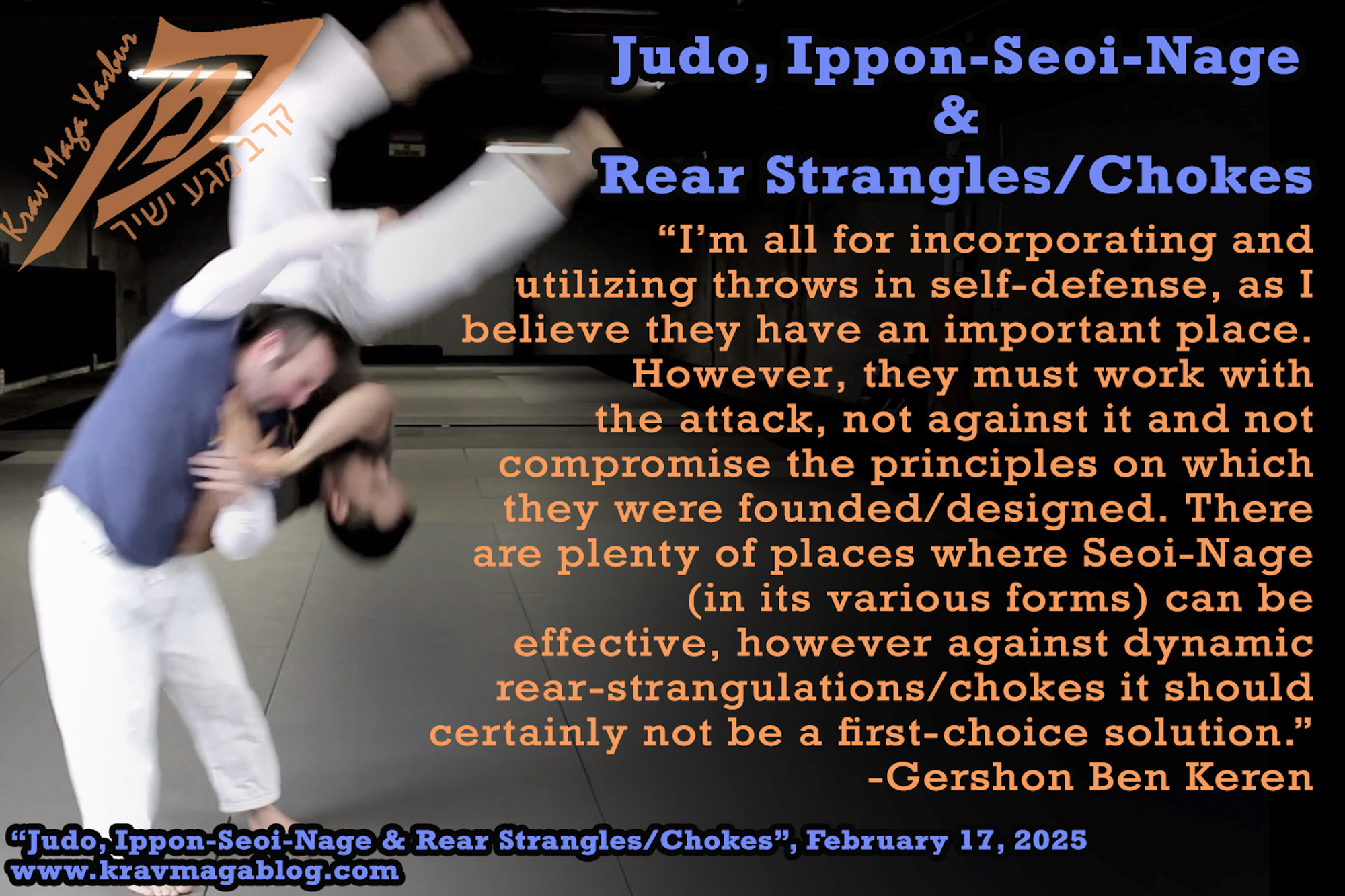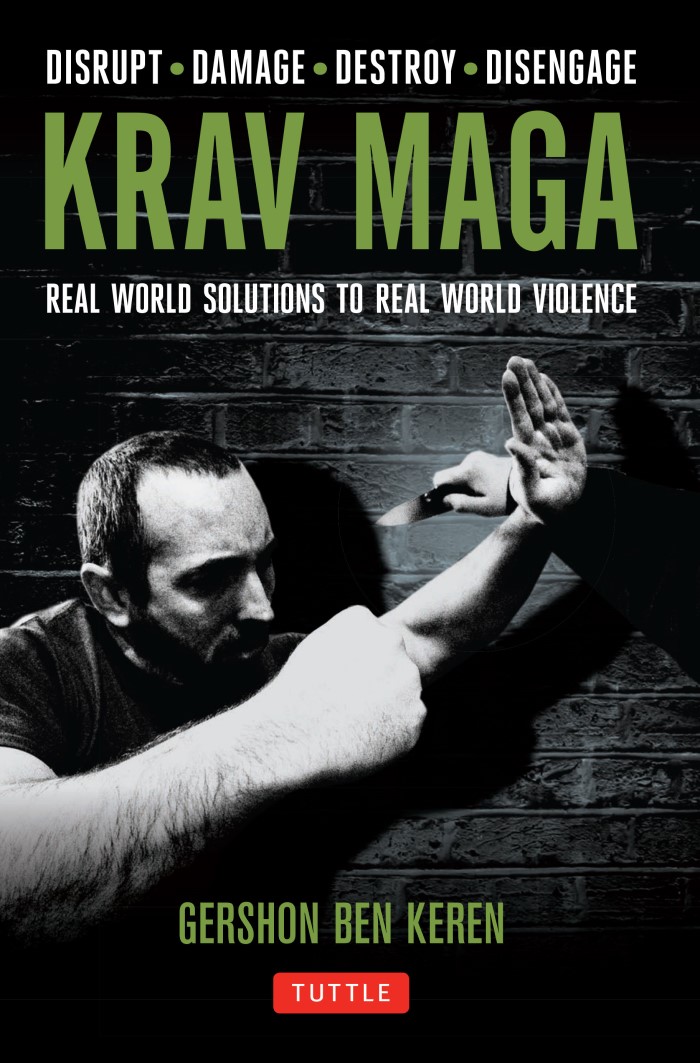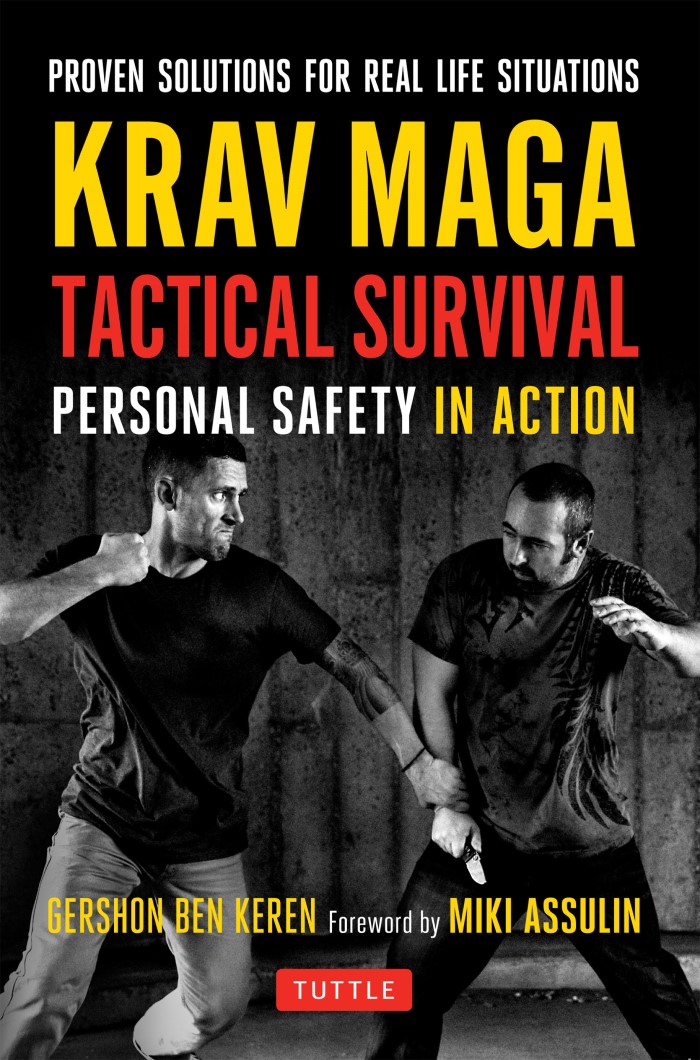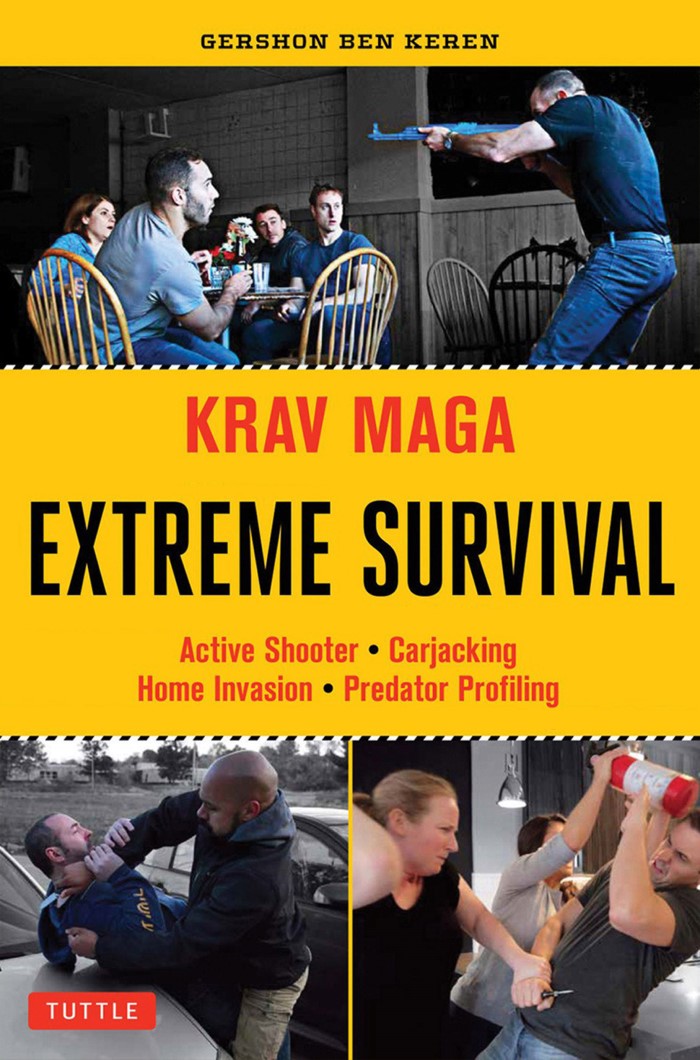Choking Under Pressure, is an article written by Gershon Ben Keren, a 5th Degree Black Belt in Krav Maga, who teaches Krav Maga in Boston, MA. He has also authored three Amazon best-Selling Books on Krav Maga.
Most adults haven’t been in a street fight – this is a good thing – and although they may train in a reality based self-defense system, such as Krav Maga, worry and wonder if they were called upon to use their training whether it would work for them. This is one of the reasons I believe in Krav Maga (that which was developed and trained in Israel, and used by the IDF); that it is continually tested in a variety of real life situations by a diverse set of individuals of differing body types and athletic ability, somebody like you has had to use it to defend themselves. Training in a system that has had a large body of people use it successfully over a long period of time, is a good reason to be confident that what you are learning is effective. Even so, people who have trained for a long period of time, may still question their ability to perform at the time when it really counts; the training environment is very different to reality however much you bring reality on to the mats.
The most frequent question I hear on the subject of being able to perform in reality, is from women both in regular class, and in our free women’s self-defense program, who often ask “but would this technique work against a man who is a lot bigger and stronger than me?” This question holds a great truth about choking under pressure. The person asking it has usually been able to perform the technique against a compliant or semi-compliant partner, so they’ve enjoyed a level of success, but rather than simply enjoy that success they start to question it – which is natural – as they look to progress what they’ve just learnt from the training environment to reality. The answer to their question of whether they could perform the technique in a real-life situation at this moment in time, is probably no; they’ve just learnt the technique so their ability to perform it correctly an effectively is limited to the situation in which they have just trained it in. Rather than question their ability though, they question the technique, and use it to express a doubt not just about themselves as an individual, or the technique but about the point of learning self-defense. Their question is really saying, “I’m not sure women are able to defend themselves against men.” When people are reminded of the reasons why they shouldn’t be successful, they usually aren’t: they choke. It doesn’t matter if they’ve enjoyed great success in the past, once they are reminded of the reason or the stereotype that says they should fail they will under-perform.
There have been countless studies of this in Academia, where students who are at prestigious universities, where they achieved their place by merit alone are reminded before an exam (part of the study), that they either come from a low social strata, belong to an ethnic minority, or are a woman etc. significantly under-perform in the exam compared to their previous results and successes. If you are reminded why you should fail you will. It’s as simple as that. We refer to these things as “Peripheral Doubts”, those negative thoughts, which hang around the edges of your focus on the task that you are being asked to perform. “Self Stereotyping”, is one of these peripheral doubts e.g. as a smaller woman I will be unable to defend myself against a larger male, as someone aged 35 who has never been involved in a fight I won’t be able to defend myself against an experienced street-fighter.
We can always create the giants and the monsters that we will fail against and we can always set up impossible situations for ourselves to face; and talk ourselves out of our ability to perform in them. When we do find ourselves facing our worst nightmares, they may not really be our worst nightmare; as aggressive and angry as the person before us seems, doesn’t mean he has ever been in a fight, or one that lasted more than 5 seconds. There is no such thing as a fair fight, and if someone tries to engage you in one, then they have made sure that the odds are stacked in their favor. That doesn’t have to be your reality. If you are a 120 LB woman having to deal with a 250 LB sexual predator, you don’t have to beat them like you would in a ring fight, you only have to prevent them from doing what they want to do – if you set yourself the objective of beating them to a bloody pulp, rather than finding a way to cause enough pain for them to hesitate or allow you to break away (and this happens more than it gets reported on) you have a much more achievable goal. There are no rules on the street, and this is usually said to differentiate ring and combat sports from reality based self-defense in order to demonstrate that you should learn to defend yourself against knives and multiple assailants as well as just singular, unarmed combatants. However it should also show you, that you aren’t obliged to “win” or to even fight, that there are multiple ways to survive the situation. Man has dominated this planet, and learnt how to deal with animals who are stronger, faster and bigger, and who are armed with claws, teeth and better natural weapons simply not by following their rules of engagement and choosing his own. Our imagination is both our greatest weapon and our biggest weakness.
We choke when we see the task as being too great and our ability to little. We forget that we can define our own outcomes and goal e.g. we don’t have to deal with the 250 LB giant on his terms, we don’t have to fight his fight (as Kelly McCann, always says, “The only fair fight is the one you lose”), we can choose our own goals and outcomes. We can come up with more reasons to fail, than we can to succeed – this will always be the case – and if we focus on these then we will fail. Our training comes direct from Israel, we bring the best in the world to our school, and our training methods are proven to work. Have confidence in what you do, and remember your successes in training rather than your failures – as it will have been your lack of doubt at those moments which allowed you to succeed.
0 COMMENTS

